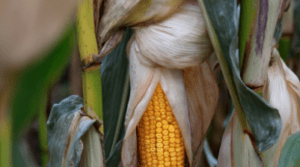The European Union, the US, Asia Pacific and Latin America, especially Brazil, will likely see biofuel uptake.
This is due to their advanced biofuel markets, supportive policies and subsidies. Moreover, concerns over biofuel fraud will likely lead to enhanced regulatory oversight in the EU this year.
However, in Africa, parts of Asia Pacific and other developing economies, biofuel adoption is increasing more slowly due to limited infrastructure, less policy support and higher costs.
Nevertheless, some countries are making significant strides with dedicated blending programmes.
Asia Pacific
According to SGS INSPIRE, bio-based fuels will continue to be part of efforts to reduce the fuel import bill in Asia Pacific.
Previously, China primarily exported biodiesel to international markets, but in 2024, largely driven by the impact of European anti-dumping policies, the Chinese government began collaborating with local companies and authorities to promote the use of biodiesel in on-road vehicles and inland marine sectors.
In Indonesia, plans are underway to increase the biodiesel blend to B40 for regular diesel and to introduce a 5% renewable diesel blend in premium diesel from this January.
Additionally, there is a proposal to implement a 50% palm oil-based biodiesel blend (B50) by early 2025, though industry experts suggest this may be more feasible by the end of the year due to required testing and capacity enhancements.
The Malaysian government planned to expand the B20 biodiesel blend nationwide in 2024.
However, it is currently supplied only in specific regions, including Langkawi and Sarawak.

In 2025, the government may introduce the B30 biodiesel blend in the latter half of the year, depending on biodiesel availability.
While India may slightly miss its 20% ethanol blending target by the end of the first quarter of 2025, it is expected to achieve this goal in the second half of the year, facilitated by the introduction of Ethanol-100 and flex-fuel vehicles.
In the Philippines, an increase in the biodiesel mandate to B4 is anticipated in the fourth quarter, alongside the availability of E20 in the market. Thailand plans to phase out the E10 regular grade, focusing on E20 and B7 as primary biofuel grades.
Europe
The European demand for advanced biofuels has been growing since 2018 and will keep growing in 2025 for use in transport fuels.
EU’s production of advanced biofuels is expected to rise, driven by the transposition of the Renewable Energy Directive III (RED III) into national laws by 2025, the implementation of sustainable aviation fuel (SAF) mandates, and GHG intensity reduction targets in the marine sector.
A SAF mandate in the UK started on January 1 with several projects receiving government funding to boost domestic SAF production.
The Union Database for Biofuels (UDB), launched in 2024 to combat certification fraud, may face a delayed mandatory implementation to January 1, 2026, due to technical challenges after 16 EU member states, including France, Germany, Italy and Spain, requested the delay.
In early March 2023, there were reports of fraudulent imports of biodiesel from China, which were then sold as advanced biofuels on the European market.
Consequently, the Netherlands, France and Germany have insisted on anti-fraud investigations into imported biofuels and reinforcement of the governance systems, including granting EU member states the right to demand inspection access.
SGS INSPIRE anticipates that although the UDB may have a limited initial impact on the market, it is likely to improve market transparency and help stabilise feedstock prices in the long run by eliminating counterfeit supplies.
North America
The US Environmental Protection Agency (EPA) has set renewable fuel volume targets for 2025, demonstrating steady policy support for biofuels.
These targets mandate minimum blending levels of renewable fuels, such as ethanol and biodiesel, into the national fuel supply and ensure predictable biofuel demand.
Renewable diesel production capacity in the US is projected to continue expanding, although slower than in recent years.
The US fuel ethanol industry is also anticipated to grow steadily, supported by potential year-round sales of E15 (a blend of 15% ethanol and 85% gasoline), domestic energy policies and strong export demand from Canada, the UK and India.
However, SGS INSPIRE expects political and regulatory uncertainties to impact the biofuels sector trajectory.
Potential policy shifts due to changes in federal funding priorities deriving from the new administration could weaken renewable fuel mandates and reduce incentives for clean energy.
In Canada, the biofuels’ industry is projected to experience steady growth in 2025, driven by supportive policies like the Clean Fuel Regulations and increasing provincial mandates for renewable fuel blending.
Ethanol demand is expected to rise in provinces such as Ontario and Quebec that plan to raise their blending requirements to E11 and E12, respectively. This shift will likely lead to increased ethanol imports from the U.S.
Latin America
In Latin America, the market share of first-generation biofuels will continue to be dominant in the short and medium term, with progressively stricter fuel quality specifications and vehicle exhaust emission standards.
The Brazilian biodiesel blending mandate is set to increase to 15% this year, with sugarcane and soybean oil maintaining their dominance as primary feedstocks for ethanol and biodiesel production, respectively.
The 10% biodiesel blending mandate in fossil diesel is expected to be reinstated in 2025 in Colombia.
In Paraguay, fuel ethanol production is projected to reach 680 million litres, a 6% increase from 2024, with domestic consumption anticipated to rise by 9%, totaling 430 million litres.
Africa
In Africa, the biofuel demand will depend on the enforcement of biofuel mandates at national level in various countries this year.
The example of Uganda demonstrates the clash between policies and market.
The Biofuel Act from 2018 promoted the use of biofuels in transport fuels, but due to insufficient domestic ethanol production in the country, it was not implemented.
In 2020, there was another attempt at further promoting the use of biofuels through the Biofuel Act 2020, but the enforcement date was delayed to July 2022 and later to July 2024.
The ethanol mandate of 1% v/v in gasoline was not implemented in July 2024 and it is expected to be delayed until ethanol supply is sufficient to meet local demand.
Similarly, South Africa has been considering incentives to boost biofuels production, aiming to enforce ethanol and biodiesel mandates. They had been introduced in 2015, but, again, remained unimplemented due to supply constraints.
For more information: Visit inspire.sgs.com













